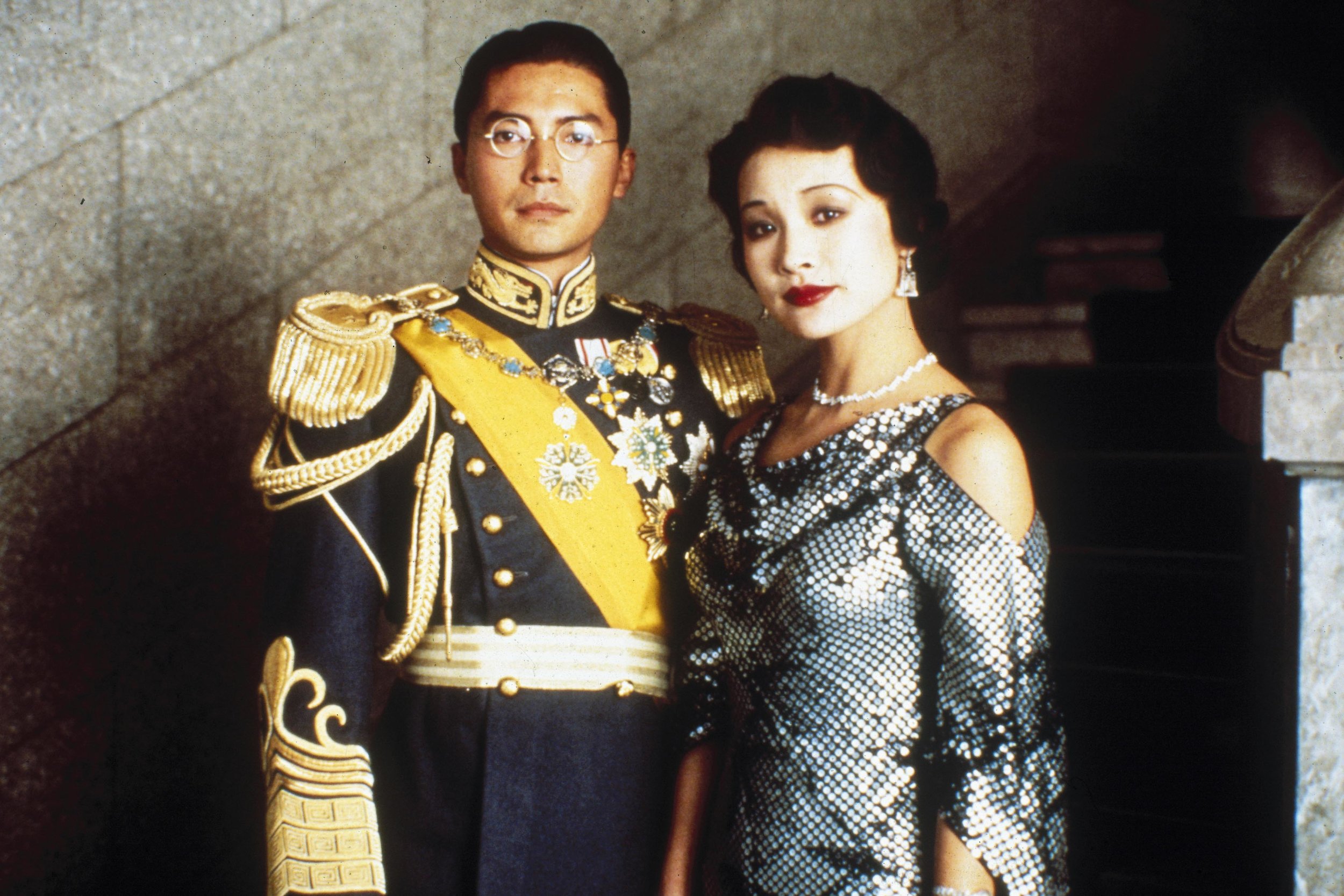Summary:
The story of the final Emperor of China
My Thoughts:
Readers Note: This was my first time watching this film. I have not seen the original theatrical cut, so I have no idea how that cut compares to this one. As most of my issues with this film are its length and some of the pacing, I’m sure trimming the movie by almost fifty minutes would eliminate all of those issues. I enjoyed this movie enough that I’m sure, at some point in my life, I’ll revisit it, and if I happen to watch the theatrical cut I’ll add an addendum with thoughts on that cut. Now, let’s begin.
This film feels like a falling off point between some of the great epic classics like “Lawrence of Arabia”, “The Great Escape”, and “The Bridge on the River Kwai” and modern epics like “There Will Be Blood”, “The Thin Red Line”, and “Downfall”. While not always true, I feel like classic Hollywood epics were often stuffed to the gills with hundreds of extras dressed in elaborate costumes; sometimes they boasted giant battle sequences with death-defying stunts and enormous practical effects; the sets were enormous and expensive. The point is that the spectacle of the film seemed to come from not only showing a character on a journey that forever changes them, but also in showing how grandiose their set pieces could be.
Nowadays, CGI has made anything possible, and to a degree, the epicness of the things we see on screen has been slightly diminished by the fact that it can all be crafted inside a computer. In my opinion, the chariot race in “Ben-Hur” will always be infinitely more compelling than the Thanos vs Avengers fight sequences in “Avengers: Endgame”; that scene is just so much more real; so much more is at stake. I feel like nowadays, for me to gravitate to a film and really label it as epic, I need there to be a great character arc. Show me a character or characters struggling through their life in their world an interesting way and showing visible change (“Suspiria (2018)”, “Yi Yi”, “A Prophet”), and I will always find that more interesting than a giant mindless CGI-fueled ‘epic’ battle (“The Matrix Revolutions”, “Rampage”, “Batman v Superman: Dawn of Justice”).
“The Last Emperor” feels a lot like the older classics. The epicness of this film comes not only from the insane amount of costumed extras and brilliantly designed sets and locations (not CGI crowds or greenscreen sets), but also from the lengthy, tumultuous, eventful journey of our main character, Pu Yi. Four different people played Pu Yi during the different stages of his life. At age three Richard Vuu played him; at age eight Tsou Tijger played him; at fifteen Tao Wu played him; and as an adult, where we spend most of our time with Pu Yi, John Lone (“Rush Hour 2”) plays the emperor.
The story is told in flashback form; the first scenes are of Pu Yi when he is in an internment camp following WW2. But then as the film flashes back, we get glimpses of Pu Yi as a child, from the time he’s first appointed emperor; through his schooling with the Englishman Reginald Johnston (Peter O’Toole, “The Lion in the Winter”); to his arranged marriages with Wan Jung (Joan Chen, “Lust, Caution”) and his secondary consort Wen Hsiu (Vivian Wu, “Teenage Mutant Ninja Turtles III”); to his decisions that broke with tradition… This film paints a vivid picture of Pu Yi, one that doesn’t deify the man or crucify him; instead it shows us a man with many faults but also a very large heart. As this film is just about a man’s life, there isn’t much of a conventional plot, but there are themes that make constant appearances.
One of the most major themes is that of transience. That theme of transience is most obvious over the course of his life as Pu Yi begins his life as an emperor, but he dies a common man. But that theme stretches out beyond his overall life and into the little details, the little story arches that build his life story. We see a transitory state in the shift of the political face of China, as it shifts towards communism. We see a break with tradition, and an influence of Western culture- in the beginning of the film, Pu Yi was forced to hold so strictly with tradition that he wasn’t even allowed to set foot outside the Forbidden City, and by the end has traveled far and wide, and he’s taken on a western name. This film sings a requiem for a lost but not forgotten time.
In comparing this film to other epics, I would say this film falls more in line with the character driven epics like “Patton” or “There Will Be Blood”. Though this film does have elaborate sets and hundreds of extras, those extras aren’t used in grand scale battles; they’re used as commoners. The epicness of this movie comes from the character’s journey more than anything else. Pu Yi’s position of power gives him a front row seat to watching the world change, and watching that change inevitably changes him as well.
Verdict:
I really enjoyed this film. Compared to some epics today, this might be considered a touch slower, but it is still an incredibly well done film. The sheer scope of the world that Bertolucci shows us is immense and breathtaking, and the journey he takes us on is simply unforgettable. There might not be any major battles or sudden betrayals, but the dramatic and event-filled life of Pu Yi holds just as much entertainment and intrigue as some of the greatest epics ever made.
Review Written By:






